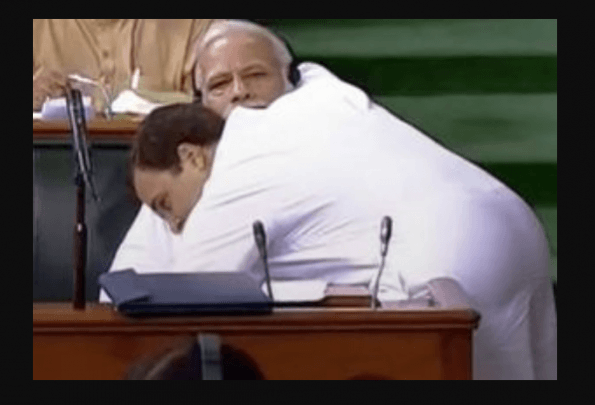
If the verdict on May 23 is on the lines of the exit polls, Rahul Gandhi will be more lonely as he stands amid the deafening silence of his party's electoral graveyard. If the exit polls prove right, which is more likely than not, Prime Minister Narendra Modi is likely to get more than just one more term in office. The Modi magic looks like it's got legs, and the Modi-Amit Shah combine looks a pair that will go far, really far.
Psephologist-cum politician Yogendra Yadav wrote a requiem for the Congress immediately after the exit poll results were out. He wanted the Congress to die. Yadav's was more of a lamentation than a critique. For him Congress was the last line of defence between India and Modi. And he's dismayed that, that hope has unravelled.
Yadav's stance is too simplistic. "This was an election for the soul of India. At stake was the very idea of India ..." he says. His regret is that Congress has failed India. "... this country desperately needs an alternative to this divisive politics," he goes on, adding that now Congress doesn't look like being able to play that part.
ALSO READ: Time magazine puts Modi on cover, pens brazen obituary on India's democracy
Yes, Congress can't play that part. Before we come to the reasons why, it must be said that Yadav himself is speaking pretty much the same way as Rahul Gandhi.
For the assorted Opposition, love and hate have been two useful abstract nouns during this entire election cycle. And Rahul Gandhi's love-hate binary treatment of Indian politics stood out for its naiveté. For him Modi and the BJP personified hate while he and his followers were the virtuous lot, purveyors of love.
Rahul's persecution complex?
If Rahul and his party are going to meet the fate the exit polls say they will, one major reason is this simplistic deduction of Indian politics into a love-hate wrestling bout. The themes over which this election was fought were more substantial, and bigger, than the love-hate paradigm.
Rahul's 2019 campaign was eerily similar to his 2014 campaign. In 2014 he portrayed himself as a well-meaning outsider who was on a mission to deliver the country from evil. This time round, this image was burnished a little more. In other words, he added a bit of persecution complex to the mix. He truly believed he was all love and Modi was all hate. That's pretty much all that he had brought to the campaign stumps. That's why, despite looking like an affable person with honest intentions, Rahul failed to deliver, as Yadav says bemusingly.
In the dead heat of the campaign Rahul repeated with all zest that love was going to defeat hate. Even if you were to accept this deeply flawed argument, Rahul should have realised that for love to bear fruit he needed partners.
This is probably a point on which one could agree with Yadav. Rahul and Congress didn't do what was required. They didn't put partnerships in place. Rahul looked like he genuinely believed he could do it alone. He was so convinced that he alone could be the agent of the change that he preached.
He was probably too smug to sit down with possible partners and stitch up coalitions. That over-confidence is also the result of the persecution complex. I'm the nice one, and I ought to win.
Of course nice guys finish last. But in this case, a lot of nice people in India probably didn't just hear Rahul's war cry. Anyway, he wasn't talking much about the economy, jobs, national security, corruption and the like.
(The author is Managing Editor, International Business Times, India. Views are personal. Reach the author at j.jacob@ibtimes.co.in)








